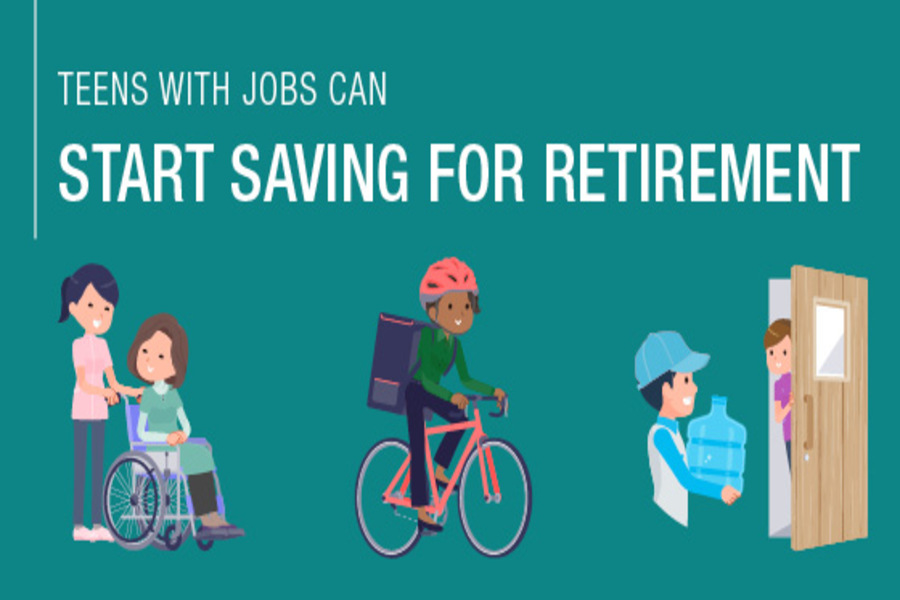If your child is fortunate enough to be awarded a scholarship, you may wonder about the tax implications. Fortunately, scholarships (and fellowships) are generally tax free for students at elementary, middle and high schools, as well as those attending college, graduate school or accredited vocational schools. It doesn’t matter if the scholarship makes a direct payment to the individual or reduces tuition. Requirements for tax-free treatment However, scholarships are not always tax free. Certain conditions must be satisfied. A scholarship is tax free only to the extent it’s used to pay for: Tuition and fees required to attend the school and Fees, books, supplies and equipment required of all students in a particular course. For example, expenses that don’t qualify include the cost of room and board, travel,...

If your business receives large amounts of cash or cash equivalents, you may be required to report these transactions to the IRS. What are the requirements? Each person who, in the course of operating a trade or business, receives more than $10,000 in cash in one transaction (or two or more related transactions), must file Form 8300. What is considered a “related transaction?” Any transactions conducted in a 24-hour period. Transactions can also be considered related even if they occur over a period of more than 24 hours if the recipient knows, or has reason to know, that each transaction is one of a series of connected transactions. To complete a Form 8300, you’ll need personal information about the person making the cash payment, including a Social Security...
“Vishing” may sound familiar, but unless you’re a fraud investigator, you probably haven’t encountered it. Unfortunately, that could change . . . soon. To foil a scam that increasingly takes advantage of remote workers, learn what vishing is and how your business can prevent it from infiltrating your network. Clarifying terms Vishing isn’t the same as “phishing.” The latter is a type of social engineering fraud that involves email or text messages designed to trick someone into revealing sensitive personal information. Or it may target employees to gain access to worker and customer data, as well as intellectual property. Voice vhishing (or vishing) scams, on the other hand, involve phones — rather than email or text messages. Vishing schemes often are more aggressive, elaborate and personalized than traditional...
If you have a parent entering a nursing home, you may not be thinking about taxes. But there are a number of possible tax implications. Here are five. 1. Long-term medical care The costs of qualified long-term care, including nursing home care, are deductible as medical expenses to the extent they, along with other medical expenses, exceed 7.5% of adjusted gross income (AGI). Qualified long-term care services are necessary diagnostic, preventive, therapeutic, curing, treating, mitigating and rehabilitative services, and maintenance or personal-care services required by a chronically ill individual that is provided under care administered by a licensed healthcare practitioner. To qualify as chronically ill, a physician or other licensed healthcare practitioner must certify an individual as unable to perform at least two activities of daily living (eating, toileting,...
As posted to the Lex Fridman YouTube Channel on 8/20/21 (Run Time: 11 min, 29 sec) "Tesla AI Day presented the most amazing real-world AI and Engineering effort I have ever seen in my life" -- Lex Fridman On 8/19/21, Elon Musk convened Tesla AI Day, an event to share progress in the automaker’s software and hardware development related to artificial intelligence. The sole purpose of the even was a recruiting platform for Tesla’s AI team. Lex Fridman, presents here a quick video on the main innovations presented at Tesla AI day. (This is Blog Post #1075) Lex Fridman is an AI researcher working on autonomous vehicles, human-robot interaction, and machine learning at MIT and beyond. You can find his MIT Deep Learning and Artificial Intelligence Lectures at deeplearning.mit.edu, and the...
Perhaps you operate your small business as a sole proprietorship and want to form a limited liability company (LLC) to protect your assets. Or maybe you are launching a new business and want to know your options for setting it up. Here are the basics of operating as an LLC and why it might be appropriate for your business. An LLC is somewhat of a hybrid entity because it can be structured to resemble a corporation for owner liability purposes and a partnership for federal tax purposes. This duality may provide the owners with the best of both worlds. Personal asset protection Like the shareholders of a corporation, the owners of an LLC (called “members” rather than shareholders or partners) generally aren’t liable for the debts of the...
Your employees shouldn’t accept any gift offered with the intent to improperly influence business decisions — or even one that merely appears to compromise their ability to act in your company’s best interests. Unfortunately, kickbacks are often disguised as gifts or travel, so they can be hard to identify. Here’s how to maintain your business’s high ethical standards. Applying the integrity test Kickbacks return a portion of the money exchanged in a business transaction as compensation for favorable treatment. However, gifts, gratuities or courtesies of modest value associated with ordinary business practices are usually acceptable. The key consideration is the intention of the giver. Yet you must take care to avoid not only an actual impropriety, but also the appearance of impropriety. Defining what’s proper or improper with...
(This is Blog Post #1072)...
More than 43 million student borrowers are in debt with an average of $39,351 each, according to the research group EducationData.org. If you have student loan debt, you may wonder if you can deduct the interest you pay. The answer is yes, subject to certain limits. However, the deduction is phased out if your adjusted gross income exceeds certain levels — and they aren’t as high as the income levels for many other deductions. Basics of the deduction The maximum amount of student loan interest you can deduct each year is $2,500. The interest must be for a “qualified education loan,” which means a debt incurred to pay tuition, room and board, and related expenses to attend a post-high school educational institution, including certain vocational schools. Post-graduate...
Forensic accountants are professionals who have received specialized training to uncover fraud and protect against fraud threats. They’re uniquely qualified to review financial statements and business records and to interview employees to find evidence of misrepresentations and theft. In many cases, they’re able to help recover missing funds. So if you suspect fraud and possibly want to take a perpetrator to court, a forensic accountant can be critical. Essential expertise Forensic accountants specialize in conducting fraud audits and investigations to detect irregularities and troubling trends, looking for both telltale and subtle signs of occupational crime. Certified fraud examiners (CFEs) are specially trained in fraud discovery, recognition, documentation and prevention. Forensic accountants are also generally knowledgeable about human behavioral factors and motivations that contribute to the commission of fraud,...
- 1
- 2
- 3
- 4
- 5
- 6
- 7
- 8
- 9
- 10
- 11
- 12
- 13
- 14
- 15
- 16
- 17
- 18
- 19
- 20
- 21
- 22
- 23
- 24
- 25
- 26
- 27
- 28
- 29
- 30
- 31
- 32
- 33
- 34
- 35
- 36
- 37
- 38
- 39
- 40
- 41
- 42
- 43
- 44
- 45
- 46
- 47
- 48
- 49
- 50
- 51
- 52
- 53
- 54
- 55
- 56
- 57
- 58
- 59
- 60
- 61
- 62
- 63
- 64
- 65
- 66
- 67
- 68
- 69
- 70
- 71
- 72
- 73
- 74
- 75
- 76
- 77
- 78
- 79
- 80
- 81
- 82
- 83
- 84
- 85
- 86
- 87
- 88
- 89
- 90
- 91
- 92
- 93
- 94
- 95
- 96
- 97
- 98
- 99
- 100
- 101
- 102
- 103
- 104
- 105
- 106
- 107
- 108
- 109
- 110
- 111
- 112
- 113
- 114
- 115
- 116
- 117
- 118
- 119
- 120
- 121
- 122
- 123
- 124
- 125
- 126
- 127
- 128
- 129
- 130
- 131
- 132
- 133
- 134
- 135
- 136
- 137
- 138
- 139
- 140
- 141
- 142
- 143
- 144
- 145
- 146
- 147
- 148
- 149
- 150











